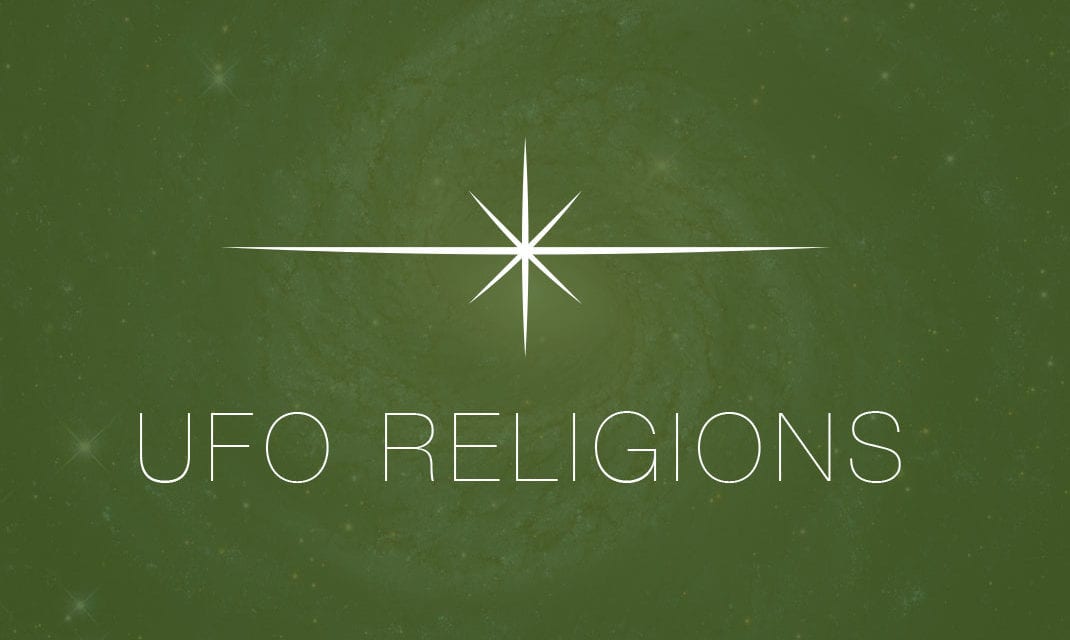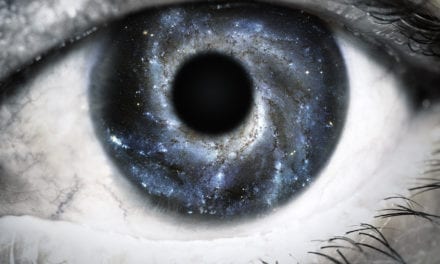If you’ve read the “Purpose” page on this blog, you know that the focus of this blog is the intersection of the UFO phenomenon (and its spin-off phenomenon, “alien” abduction) with religion. While my academic and personal background is Judeo-Christianity, I’m not going to restrict the discussion to only Judeo-Christian religion and the Bible. In a manner of speaking, though, I’m going to start there.
It’s been my experience that the vast majority of people involved in ufology (professionally or otherwise) understand that the UFO question is inherently religious. An answer to the question of whether we are alone in the universe or not is inseparable from our perception of the meaning and sanctity of human life and the nature of reality. If it turned out that there are intelligent aliens, humans would inevitably have to merge that information with the worldview they held prior to that information. They would have to process their old understanding of reality–which would include a view of God and God’s involvement in the world–in light of the new reality. Quite understandable . . . but simplistic.
This “processing of information” task in the wake of an ET revelation is what many people think of when they consider the relationship of religion to the UFO/ET question. We assume that the old information must be judged by the new. Personally, I see this kind of processing as having merit in the wake of an assured ET reality–something that we would need to do after we knew for sure that we weren’t alone. But what prior to such a revelation? Should we re-imagine, redefine, and re-articulate religion in response to something strange or terrifying, the nature of which we do NOT have certainty of? Should the old give way to a new that itself is unknown, undefined, and (perhaps deliberately) opaque? Personally, I don’t think so. Not only would I see doing this as inadvisable, I’d say it’s downright foolish. And yet this is what millions of people have been doing for quite a long time when it comes to religion and the UFO/ET question. Under the assumption that something seen in the sky or experienced firsthand “must be” alien, people have redefined reality against the backdrop of something that remains unprocessed. Yes, the sighting or experience may be real, but that doesn’t tell anyone what it was.
What this means is that we need a different kind of processing method for the data as they are right now. The method needs to avoid taking one hypothesis (that someone’s experience had alien causation) as THE way to understand the problem. The ETH can be on the table with everything else, but it is only one of many possibilities. An experience ought to be processed in light of all the possibilities. Yet so many people are predisposed toward one possibility.
For this reason, it’s advisable to be wary of anyone who would claim with certainty what UFOs are or are not, and what claims of ET encounters are or are not. Everything should be on the table. This is precisely the bone I wish to pick with people like Monsignor Corrado Balducci. In case you aren’t familiar with the name, Monsignor Corrado Balducci was an official Exorcist for Rome, former diplomat in the Papal Nunciature in Washington, DC, and past theologian member of the Vatican’s Congregation for the Propagation of the Faith. He is also supposedly an insider who has the attention of the Pope. Monsignor Balducci, now retired, is arguably the highest ranking Catholic official to publicly speak to the issue of an extraterrestrial presence engaging the human race. Balducci has insisted publicly (I know, having been at the X-Conference in 2005 where he said it) that UFOs and ETs have nothing to do with evil, the demonic realm, or the occult.
How does he know?
The short answer is, “he doesn’t.” Amazing how so many people in ufology hate arguments from authority (especially religious authority) have embraced Balducci, who offers nothing but that for his position. Balducci’s dogmatism on a matter that has not been proven to even be existent in our known reality simply goes to far. But worse than that, it shows an ignorance of the history of the UFO contactee and abductee phenomena. Had Msgr. Balducci bothered to get into the academic literature on this subject (and there’s a lot of it), he would never have made such a silly statement. There are dramatic points of correlation between what contactees and abductees say about their experience, and the information they were given by their contactors or abductors, and well-known occult movements, thinkers, and writings. Frankly, there is abundant evidence against what Balducci says. That evidence needs to become known in the UFO community so it becomes part of how the UFO/ET question is processed.
As solution to making this material known to the UFO community, I’m going to be taking readers through a series of scholarly works on UFOs and religion. I don’t know how long it’ll take, but that doesn’t matter. Virtually everyone in the UFO community is poorly informed when it comes to this kind of material. It’s time to raise the bar on how we process the problem.
The first book we’re going to work through is UFO Religions, edited by Dr. Christopher Partridge. We’ll start with his own chapter in the book, the introduction, “Understanding UFO Religions and Abduction Spiritualities.”





